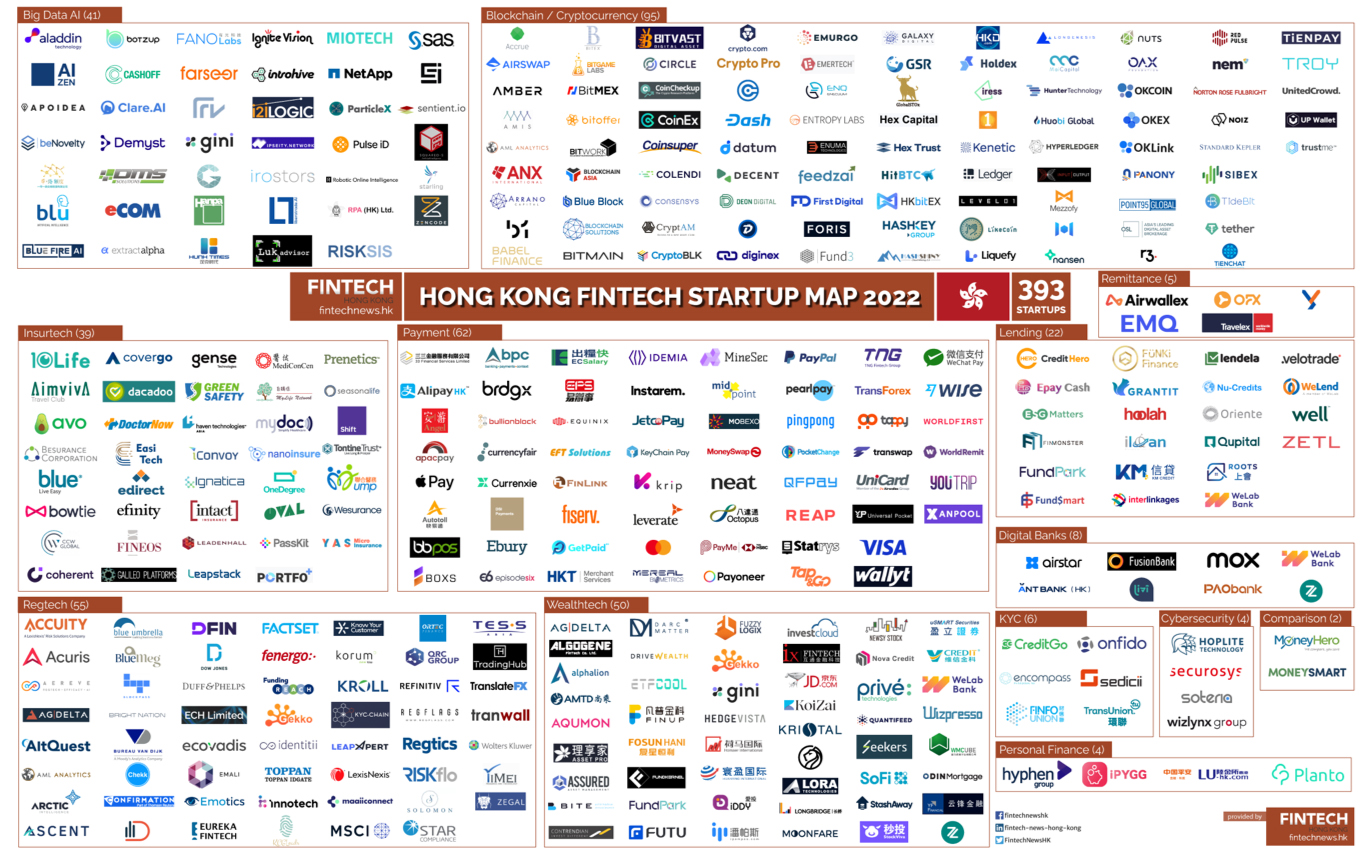
Hong Kong Fintech Report 2022: HK’s Fintech 2025 Strategy Begins to Take Shape
by Fintech News Hong Kong January 10, 2022Hong Kong continues to pursue its fintech ambitions, accelerating efforts related to regtech and central bank digital currency (CBDC). Meanwhile, the city’s eight virtual banks are seeing strong consumer uptake as they continue expanding their product offerings.
Fintech News Hong Kong’s newly released Hong Kong Fintech Report 2022 looks at key developments in the space that occurred in 2021 and share emerging trends to watch out for. In particular, the report delves into three key themes that emerged this year – CBDC, regtech and virtual banking –, gives an overview of the fintech startup landscape and outlines some of the major deals announced this year.
Exploring the prospect of CBDC
2021 saw major initiatives being announced by the Hong Kong Monetary. The Fintech 2025 strategy, unveiled in June, is a fintech development plan focusing on creating a next-generation data infrastructure, expanding the fintech workforce, fostering a favorable regulatory landscape, and researching CBDC.
Hong Kong’s commitment to CBDC is further evidenced by the various projects being conducted by the Hong Kong Monetary Authority (HKMA). These initiatives involve researching cross-border transactions using CBDCs, as well as a retail CBDC.
HKMA is currently contemplating the introduction of a retail CBDC. Research is being conducted in partnership with the Hong Kong Centre of the BIS Innovation Hub on the prospect of issuing a so-called e-HKD for the public.
Fostering regtech adoption
Regtech is another field Hong Kong is looking to become a leader in. On June 31, the HKMA hosted its flagship regtech event, a virtual conference that gathered more than 4,000 participants.
During the event, HKMA chief Eddie Yue unveiled four actions to promote regtech in the banking sector: the introduction of the Regtech Adoption Index, the rollout of a centralized knowledge hub to share regtech information and content, commitment to organizing startup competitions, and the creation of a new regtech skills framework to promote upskilling of banking practitioners.
The inaugural Regtech Adoption Index was also released during the event, outlining the state of regtech adoption in the banking sector. The study shows that although regtech adoption is still at an early stage in Hong Kong, most banks are nevertheless using some form of regtech in their operations and are positive about the potential benefits of regtech.
Uptake of virtual banking
2021 has also seen rapid consumer uptake of virtual banking. As of June, all eight virtual banks in Hong Kong had 840,000 customers and HK$21 billion (US$2.6 billion) in deposits, according to an August South China Morning Post report.
ZA Bank, Mox Bank and WeLab Bank were the top largest virtual banks in the city in terms of the number of customers.
ZA Bank, operated by a unit of China’s ZhongAn Online P&C Insurance, had 300,000 customers as of March and HK$6 billion (US$771 million) in deposits as of the end of last year. Mox Bank, the digital lender backed by Standard Chartered, had more than 150,000 customers and deposits totaling HK$5.6 billion (US$717 million) as of August. WeLab Bank, the only homegrown virtual bank of the bunch, had a customer base of about 130,000 as of July, as well as HK$2 billion (US$256 million) in deposits and HK$700 million (US$89 million) in personal loans.
The past year has seen Hong Kong’s virtual banks introducing new banking products, including personal loan products, numberless cards, buy now, pay later (BNPL) arrangements and insurance products. They are now venturing into wealth management.
ZA Bank is applying for licenses from the Hong Kong Securities and Futures Commission to manage assets and engage in securities dealing and advisory, WeLab Bank has partnered with a digital investment unit of Allianz SE to develop digital wealth management products, and both Livi Bank and Mox Bank are reportedly preparing for similar offerings.
Hong Kong Fintech Report 2022: Hong Kong’s fintech startups
Hong Kong is home to one of the world’s largest and most developed fintech ecosystems. This year’s Hong Kong Fintech Startup Map identifies nearly 400 fintech startups in the city covering a broad range of segments.

Hong Kong Fintech Map 2022, Source: Fintech News Hong Kong, Download the full report here
Blockchain/crypto is currently the largest fintech segment in the city, making up for 24% of all fintech startups in the city. Payments ranks second (16%) and is followed by investments/wealthtech (13), big data/artificial intelligence (AI) (10%) and insurtech (10%).

Hong Kong fintech distribution by segment, Source: Fintech News Hong Kong
2021 saw Hong Kong fintech startups raised massive rounds of funding. In July, cryptocurrency startup FTX raised US$900 in a Series B funding round at a US$18 billion valuation.
In September, global payment platform Airwallex raised US$200 million in an oversubscribed Series E financing round, increasing the company’s valuation to US$4 billion. And in November, trade finance fintech firm Qupital raised US$150 million through a combination of Series B equity funding and a receivables-backed securitization facility.
Other notable deals this year included WeLab’s US$75 million funding round, Amber Group’s US$100 million Series B, and BC Technology Group’s US$70 million funding round.








